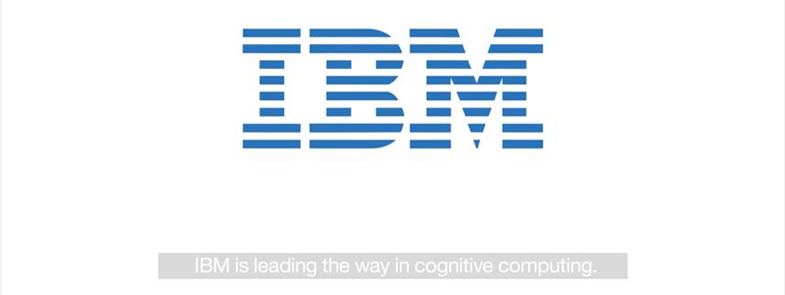Experience the interactive Multichannel News Release here: https://www.multivu.com/players/English/8668653-ibm-watson-thats-debatable-premiere/
"That's Debatable" – a new, limited series presented by Bloomberg Media and Intelligence Squared U.S. and sponsored exclusively by IBM – features industry leaders, economists, policy makers and public intellectuals debating some of today's most pressing issues. In its premiere on October 9, moderator and host John Donvan convened a vibrant debate with former U.S. Labor Secretary Robert Reich and former Greece Finance Minister Yanis Varoufakis arguing for the motion, against former U.S. Treasury Secretary Lawrence Summers and Manhattan Institute Senior Fellow Allison Schrager.
To determine the winner of the debate, the virtual debate audience was polled on the motion prior to the start - 57 percent of the virtual audience was for, 20 percent against and 23 percent undecided. Following the debate, the audience voted again with 59 percent for and 37 percent against, declaring Schrager and Summers the winners with an increase of 17 percentage points.
The full episode can be viewed on Bloomberg.com/thats-debatable or via streaming services. To learn more about the arguments the debaters made, please visit Intelligence Squared US.
Bringing More Global Voices To The Debate
To bring even more global voices and ideas to the debate, "That's Debatable" used Key Point Analysis, a novel advancement in NLP from IBM Research, to determine the main points that mattered most to the public from more than 3,500 submissions online prior to the debate. Of the 3,500 submissions, there were 1,600 usable arguments and 20 key points identified. This analysis of global public submissions and arguments prompted further discussion and exchange of ideas amongst the debaters. Using Key Point Analysis, the technology identified:
- 56 percent of arguments analyzed were for redistributing wealth, with approximately 20 percent of analyzed submissions arguing that there is currently too much wealth inequality in the world. One argument was that income inequality has increased dramatically over the past few decades, causing excessive suffering to large populations, and that if wealth is not redistributed, far greater will suffer.
- The remaining 44 percent of analyzed arguments were against the motion, with 15 percent of those arguing that redistributing wealth would discourage some people from working hard. One example argument in support of this is that redistributing the wealth discourages individual initiative, entrepreneurship, and accountability for choices.
How It Works
Key Point Analysis is the next generation of NLP-based extractive summarization, evolved from extractive summarization capabilities first used with IBM Project Debater. To generate the key points, the system utilizes four steps:
- Classify Arguments: Every submission is analyzed using a deep neural network to determine if the content is for or against the position statement, and submissions deemed irrelevant or neutral are removed.
- Identify Key Points: From 3,508 arguments submitted on the first motion, 1,600 were deemed usable. The technology evaluates the quality of each argument and identifies potential key points by grading and filtering high-quality arguments. It disregards potential key points that are too long, too emotional in tone, are incoherent or include redundancies. From 1,600 usable arguments, 20 key points were identified.
- Match Arguments to Key Points: It identifies how many arguments support each of the potential key points. It then selects a small set of key points that are diverse and cover the majority of arguments submitted - giving a percentage of the prevalence of each.
- Generates the narrative: The technology selects the key points cited most often in the submissions and a small subset of the strongest arguments that support each key point are used to create salient narratives arguing the pro and con side of the debate.
Beyond the Debate: Key Point Analysis Advancing the Language of Business
Language can present a unique challenge for the business world – each company and industry has its own vernacular that evolves in response to new innovations, changing consumer expectations and world events. Additionally, the language of business is documented in many forms, from simple text to more complicated formats like charts, tables, PDFs, and images. NLP is the branch of AI that helps businesses interpret the trends and insights that may be hidden within this type of enterprise data.
Key Point Analysis is the latest advancement from IBM designed to empower businesses to deploy and scale AI that provides greater accuracy and efficiency, including less data consumption and human oversight. IBM plans to commercialize Key Point Analysis inside Watson NLP products including Watson Discovery. Using Key Point Analysis, businesses can gain a clearer view of relevant points and considerations to help make data-driven decisions on important operational questions such as pricing adjustments, product evolution, new marketing campaigns and inventory optimization.
The use of Key Point Analysis in "That's Debatable" builds on a series of actions that demonstrate how IBM is advancing Watson's ability to understand the language of business to help companies generate new insights - from commercializing cutting-edge capabilities from Project Debater, to transforming the fan experience at the US Open and helping states get critical voting information to citizens.
To try key point analysis, explore the results from the premiere episode, and join the debate for the next episode on "A U.S.-China Space Race Is Good for Humanity," visit ibm.com/debatable.








LATEST COMMENTS
MC Press Online